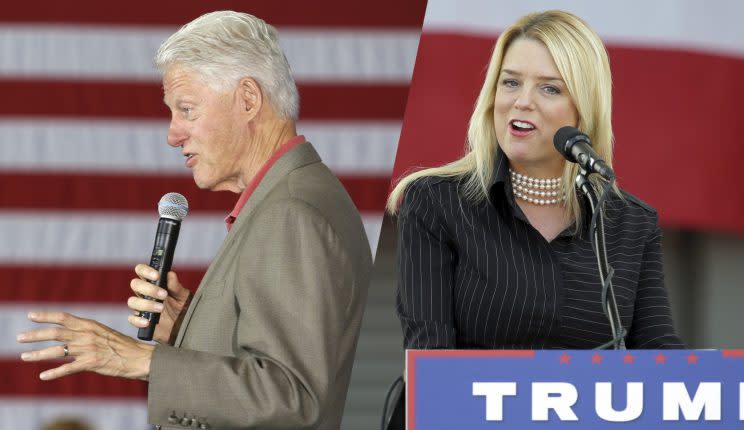Electoral College who’s who: Names to know in the pool of 538

Members of the Electoral College are meeting in state capitals across the country today to officially cast their votes to name the 45th president of the United States.
While Donald Trump has earned the title president-elect and begun the transition to staffing his new administration, the results of the election won’t be official until he collects 270 of the 538 total electoral votes.
The process for selecting electors varies widely from state to state, as do the rules stating whether or not an elector can go rogue and cast a vote for someone other than the candidate selected by their state’s vote. If no candidate receives 270 electoral votes, the House of Representatives would decide the election. Last month President-elect Trump tallied 306 electoral votes to Hillary Clinton’s 232.
Here are a few of the key players and familiar faces of the 538 Americans involved in the voting.
The ‘faithless’
An elector who doesn’t cast the vote that aligns with his or her state’s popular vote choice from Nov. 8 is considered “faithless.” According to Politico, there have been only 157 in the history of the process, with most of those coming in the 19th century. One Texas elector, Chris Suprun, said he plans to vote for Ohio Gov. John Kasich, which would be going against the will of the voters in the Lone Star State. In August, a Georgia elector said he wouldn’t vote for Trump if the candidate won the state but resigned his position shortly after making the statement.
An elector from Maine — won by Clinton — is reportedly casting his vote for Bernie Sanders. Prior to the election, multiple members of the Washington delegation — another state won by Clinton — said they weren’t certain about whether or not they’d cast their vote for the Democratic nominee.
The last time a ballot was not cast for the winning candidate from a state was 2004, when a Democratic elector from Minnesota cast his or her vote for vice presidential candidate John Edwards (spelled “Ewards” on the ballot) instead of John Kerry. The vote, which was anonymous, was assumed to be a mistake and not a protest.
New York
The president-elect’s home state will be casting all of its votes for Hillary Clinton. Among the delegates are former president Bill Clinton, Gov. Andrew Cuomo and New York City mayor Bill De Blasio. The state’s comptroller and attorney general and mayors from Syracuse, Rochester and Albany are also part of the delegation.
Pam Bondi
The Florida attorney general who spoke at the Republican National Convention is also a member of the Trump transition team. In 2013 the Trump Foundation made an illegal donation to Bondi’s reelection campaign. Days later, the state attorney general’s office chose not to pursue a class-action fraud case against Trump University. (Trump agreed to pay back the Foundation from his personal account and also pay a $2,500 IRS fine for his charity’s donating to a political campaign.)
Christine Pelosi
The daughter of House Minority Leader Nancy Pelosi is one of California’s 55 electors. Pelosi spearheaded an effort to get an intelligence briefing prior to voting regarding Russia’s involvement with the U.S. election process and defended her request in interviews with Fox News’ Neil Cavuto and Fox Business News’ Maria Bartiromo.
South Dakota
The state’s three electoral votes for President-elect Trump will be cast by three of the highest-ranking officials in the state: Gov. Dennis Daugaard, Lt. Gov. Matt Michels and Attorney General Marty Jackley.



